-
Seedshop
-
Feminized
Cannabis seeds -
Autoflowering
Cannabis Seeds -
Regular
Cannabis Seeds -
F1 Hybrid
Cannabis Seeds -
CBD
Cannabis Seeds -
Zamnesia
Cannabis Seeds
-
Top 10’s
- Top 10 Feminized Seeds
- Top 10 Autoflowering Seeds
- Top 10 Regular Seeds
- Top 10 USA Cannabis Strains
-
Favourites
- Beginner Strains
- Below 1% THC
- Classic Cannabis Strains
- Cup Winners
- F1 Hybrids
- Fast Flowering Seeds
- High CBD Strains
- High THC Strains
- Mix Packs
- Zamnesia Exclusive Collabs
-
-
Headshop
-
Vaporshop
- Spare Parts & Accessories
- AirVape XS GO (2021)
- Arizer Air MAX
- Arizer Extreme Q
- Arizer Solo 2
- Arizer V-Tower
- Arizer XQ2
- Boundless CFC 2.0 Vaporizer
- Boundless CFX
- Boundless TERA (V3)
- CRAFTY+
- DaVinci IQC
- Dr. Dabber Boost EVO
- DynaVap VapCap "M" PLUS 2023
- DynaVap VonG (i) Titanium
- Flowermate Aura
- Flowermate Cap Pro
- Flowermate Slick
- Flowermate V5.0S Pro
-
Healthshop
-
Smartshop
-
Shroomshop
-
Growshop
-
Seedshop
All CategoriesSeedshop
- Autoflower Seeds
- Feminized Cannabis Seeds
- Zamnesia Seeds
- Zamnesia's Top 10
- CBD Seeds
- F1 Hybrids
- Seed Banks
- Mix Packs
-
Popular Strain Types
- Zamnesia Exclusive Collabs
- Classic Cannabis Strains
- Amnesia Seeds
- Haze Seeds
- Skunk Seeds
- Kush Seeds
- Purple Seeds
- Blueberry Seeds
- Cheese Seeds
- Diesel Seeds
- White Widow Seeds
- Gorilla Seeds
- Northern Lights Seeds
- Granddaddy Purple Seeds
- OG Kush Seeds
- Blue Dream Seeds
- Lemon Haze Seeds
- Bruce Banner Seeds
- Gelato Seeds
- Sour Diesel Seeds
- Jack Herer Seeds
- Girl Scout Cookies Seeds (GSC)
- Wedding Cake Seeds
- Zkittlez Seeds
- Pineapple Express Seeds
- Chemdawg Seeds
- Hindu Kush Seeds
- Mimosa Seeds
- F1 Hybrids
- Mix Packs
- Cup Winners
- Beginner Strains
- High THC Strains
- Fast Flowering Seeds
- Regular Cannabis Seeds
- USA Cannabis Strains
- Cup Winners
- Seedfinder
-
Vaporshop
All CategoriesVaporshop
- Top 10 Vaporizers
- Spare Parts & Accessories
- AirVape XS GO (2021)
- Arizer Air MAX
- Arizer Extreme Q
- Arizer Solo 2
- Arizer V-Tower
- Arizer XQ2
- Boundless CFC 2.0 Vaporizer
- Boundless CFX
- Boundless TERA (V3)
- CRAFTY+
- DaVinci IQC
- Dr. Dabber Boost EVO
- DynaVap VapCap "M" PLUS 2023
- DynaVap VonG (i) Titanium
- Flowermate Aura
- Flowermate Cap Pro
- Flowermate Slick
- Flowermate V5.0S Pro
- G Pen Elite II
- G Pen Micro+
- G Pen Roam
- Hyer Big-E Rig
- MIGHTY+
- PAX Mini
- PAX Plus
- PLENTY
- Puffco Peak Smart Rig
- Puffco Plus
- Storm Vaporizer
- The Proxy (Puffco)
- VOLCANO CLASSIC
- VOLCANO HYBRID
- Vapman 2.0
- Vapman Click
-
Smartshop
All CategoriesSmartshop
- Top 10 Smartshop
- Zamnesia Gift Cards
- After Party
- Aphrodisiacs
- Aromatherapy
- Blue Lotus
- CBD Vape Juice
- Capsule Machines
- Crystals, Gemstones & Minerals
- Dream Herbs
- Drug Tests
- Extracts
- Happy Caps
- Herbal Tea
- Herbs & Seeds
- Incense
- Kanna
- Kratom
- LSA Seeds
- Mescaline Cacti
- Microdosing
- Nootropics
- Relaxing
- Salvia divinorum
- Smart Seeds
- Stimulants
- Supplements
- Tinctures
- Vape Herbs
-
TRIBE
All CategoriesTRIBE
- My Membership
- Spend Gift Points
- TRIBE Sale
- Exclusive products
- Earn Extra Gift Points
-
TRIBE
- Early Access
- Refer a Friend
- Information
-
TRIBE
-
Language
 United States
United States
Monday, 09 February and Friday, 13 February 2026*
What Is A Smartshop?
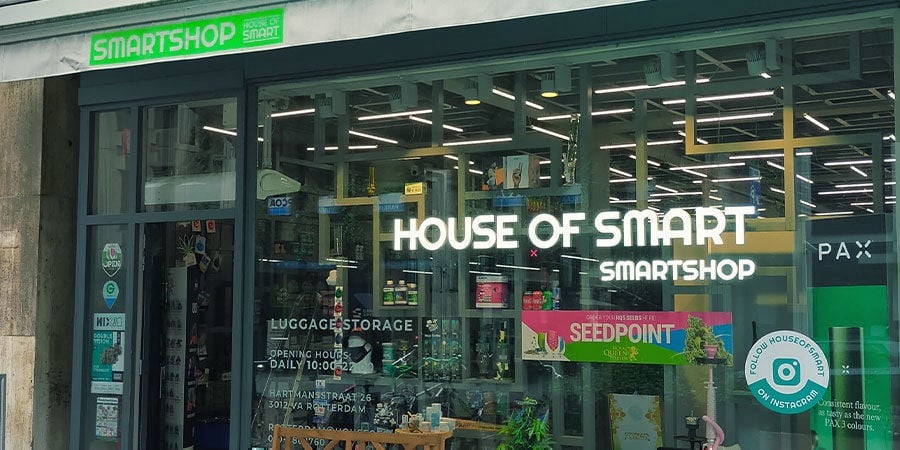
For many people, the idea of walking into a shop and buying drugs is a pipe dream. But in some places, it's a reality. Originating in the Netherlands, smartshops are stores that are legally allowed to sell psychoactive substances. Read on to discover more about them.
What's the Difference Between Smartshops and Headshops?
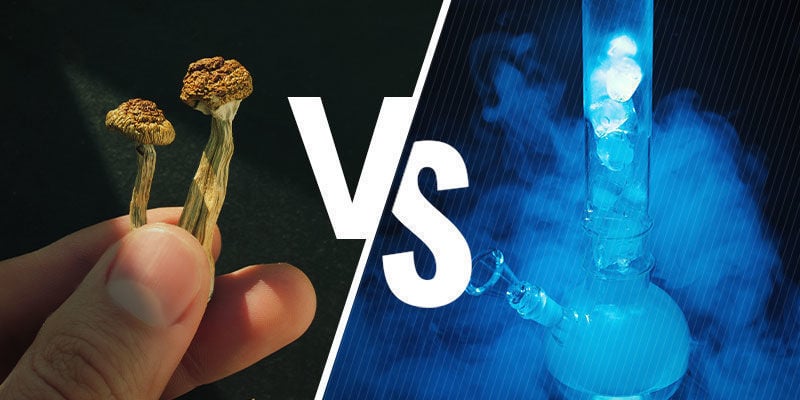
Though the terms are often used interchangeably, there is an important distinction between smartshops and headshops. Simply put, smartshops are legally allowed to sell psychoactive drugs, whereas headshops are not.
Headshops specialise mostly in drug paraphernalia. Expect to see cabinets overflowing with gleaming bongs and more blunt wraps than you can shake a stick at.
Smartshops can and do sell these items, but they specialise in the trade of psychoactive substances. Not only can you buy “soft” drugs in a smartshop, but the staff should be highly knowledgeable about them too.
The History of Smartshops
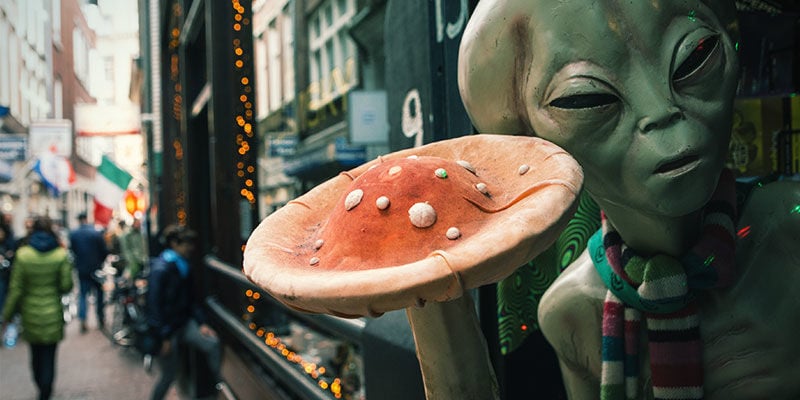
This history of smartshops is somewhat shrouded. They seem to have originated in the Netherlands, specifically Amsterdam, and grew with the rise in drug culture that occurred in the 60s.
What we do know is that cannabis coffeeshops began to appear in the 70s, with the first official coffeeshop—The Bulldog—opening in 1975. It seems likely that smartshops appeared in a similar way to coffeeshops; beginning as legally dubious, below-the-radar operations that then gained popularity.
The first official smartshop seems to have been the Art, Mind and Design Centre, opened by Hans van den Hurk. Its first year of life was fairly slow, selling mainly “smart nutrients” such as Blast, Fast Blast, and Memory Fuel, as well as art by local teenagers.
It wasn’t until they began stocking dried magic mushrooms that things really began to take off. Once these little fungi were on the shelves, popularity soared. It wasn’t long until Hans had a host of shops across Amsterdam, and around 100 wholesale clients.
Since 2002, when dried magic mushrooms were made illegal, smartshops have been on the decline.
What Can I Buy in a Smartshop?
.jpg)
The term “smartshop” arose because these establishments operate under the legal understanding that they sell psychoactive products to enhance cognitive ability; hence “smart”. Despite this name and definition, this should not be taken too literally.
Nevertheless, the drugs they are able to sell tend to be those more associated with growth and well-being, rather than party drugs that take days to recover from. Legally, all the drugs sold in smartshops must be natural. Synthetic compounds are classified differently in the Netherlands.
Examples of some drugs you may find in a smartshop are:
- Magic truffles (magic mushrooms were made fully illegal in 2008)
- Kanna
- Kratom
- Mescaline cacti
- Salvia divinorum
Smartshops: Founts of Education and Information
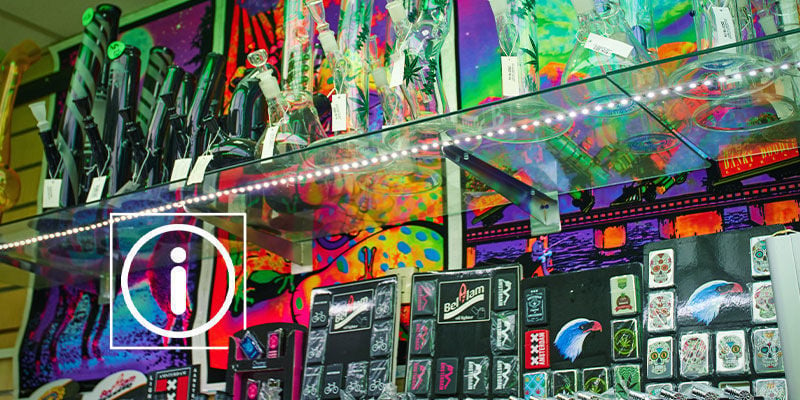
A good smartshop is not just somewhere to buy drugs, but a place to obtain thoughtful and knowledgeable advice regarding soft drugs. Staff should be able to advise you on dosage, effects and side effects of the different drugs they stock, the legality surrounding their consumption, and more.
Smartshop staff should never encourage excessive use of their products.
Where Can I Find Smartshops?
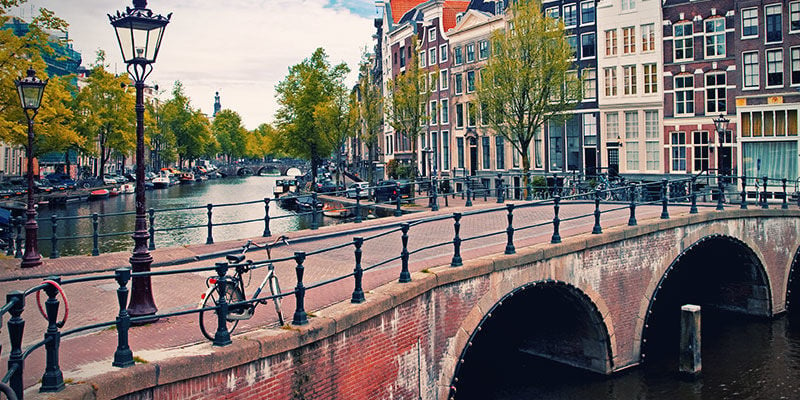
Smartshops appeared and are still found in the highest concentration in the Netherlands, specifically Amsterdam. It is possible to find them all over the world, though, but they might be called headshops, depending on where you are.
If you live outside of a dense urban space, it’s highly likely you don’t have easy access to a well-stocked smartshop. But never fear! Zamnesia's online smartshop ships all over Europe and stocks a fantastic range of high-quality products, as well as a wealth of relevant information on our blog.
Legality of Smartshops
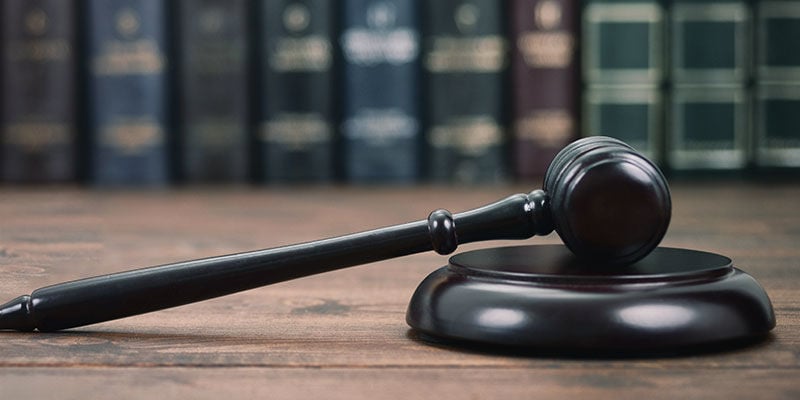
In the Netherlands, smartshops operate legally so long as they only sell natural products. In other countries, the legality can vary significantly. For instance, in some countries, they sell substances not as drugs, but as “research chemicals” advertised as not being for human consumption. So depending on location, you may find that smartshops exist via loopholes in the law, rather than within a strict legal framework. In these instances, changes often occur fairly rapidly.
If ordering any substances, it is essential to check their legality in your own country. Just because you order it legally online doesn’t mean it will still be legal once it crosses the border!

- France
- Germany
- International
- Italy
- Netherlands
- Polska
- Portugal
- Spain
- United Kingdom
- United States
You might also like
-
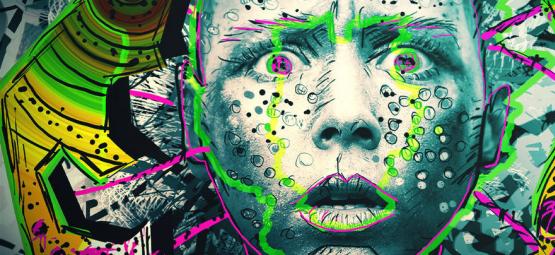
 4 min
2 June 2025
9 (legal) drugs that will induce a psychedelic trip
Interested in discovering which legal substances offer psychedelic-like effects? These 9 options might surprise you with their mind-altering potential—but be warned: not all are safe, and some are f ...
4 min
2 June 2025
9 (legal) drugs that will induce a psychedelic trip
Interested in discovering which legal substances offer psychedelic-like effects? These 9 options might surprise you with their mind-altering potential—but be warned: not all are safe, and some are f ...
-

 4 min
17 May 2020
How To Weigh And Dose Psychedelics Safely
To increase your chances of a positive and safe trip with psychedelics, knowing how much you are taking is crucial. Find out how to weigh and dose psychedelics safely! ...
4 min
17 May 2020
How To Weigh And Dose Psychedelics Safely
To increase your chances of a positive and safe trip with psychedelics, knowing how much you are taking is crucial. Find out how to weigh and dose psychedelics safely! ...
-

 4 min
25 March 2020
Ranking Psychedelics: Beginner To Spiritual Guru
Perhaps you’re an aspiring psychonaut, or maybe you’re interested in trying psychedelics for the first time. This guide is constructed as a general ranking of psychedelics from least to most inten ...
4 min
25 March 2020
Ranking Psychedelics: Beginner To Spiritual Guru
Perhaps you’re an aspiring psychonaut, or maybe you’re interested in trying psychedelics for the first time. This guide is constructed as a general ranking of psychedelics from least to most inten ...
-

 4 min
10 December 2019
The Right Herbal Extract For Every Occasion
Desire better sleep? Need to get high without using cannabis? Want to perform better in the bedroom with your partner? There's an herb for that! ...
4 min
10 December 2019
The Right Herbal Extract For Every Occasion
Desire better sleep? Need to get high without using cannabis? Want to perform better in the bedroom with your partner? There's an herb for that! ...
Categories
-
Seedshop
- Feminized Cannabis Seeds
- Autoflower Seeds
- Regular Cannabis Seeds
- F1 Hybrids
- CBD Seeds
- Zamnesia Seeds
- Top 10 Autoflowering Seeds
- Top 10 Regular Seeds
- Top 10 USA Cannabis Strains
- Top 10 Feminized Seeds
- Beginner Strains
- Below 1% THC
- Classic Cannabis Strains
- Cup Winners
- F1 Hybrids
- Fast Flowering Seeds
- High CBD Strains
- High THC Strains
- Mix Packs
- Zamnesia Exclusive Collabs
- Amnesia Seeds
- Blueberry Seeds
- Cheese Seeds
- Diesel Seeds
- Gorilla Seeds
- Haze Seeds
- Kush Seeds
- Purple Seeds
- Skunk Seeds
- White Widow Seeds
- Northern Lights Seeds
- Granddaddy Purple Seeds
- OG Kush Seeds
- Blue Dream Seeds
- Lemon Haze Seeds
- Bruce Banner Seeds
- Gelato Seeds
- Sour Diesel Seeds
- Jack Herer Seeds
- Girl Scout Cookies Seeds (GSC)
- Wedding Cake Seeds
- Zkittlez Seeds
- Pineapple Express Seeds
- Chemdawg Seeds
- Hindu Kush Seeds
- Mimosa Seeds
- Zamnesia Seeds
- ACE Seeds
- Advanced Seeds
- Afghan Seed Connection
- Amsterdam Genetics
- Anesia Seeds
- Auto Seeds
- Barney's Farm
- Big Buddha Seeds
- Blimburn Seeds
- Bomb Seeds
- BSB Genetics
- BSF Seeds
- Buddha Seeds
- The Cali Connection Seeds
- CBD Seeds
- Compound Genetics
- Cookies Seed Bank
- Delicious Seeds
- DNA Genetics
- Doctor's Choice
- Dr. Underground
- Dutch Passion
- Elite Seeds
- Eva Seeds
- Exotic Seed
- Expert Seeds
- FastBuds
- Female Seeds
- French Touch Seeds
- Garden of Green
- GeneSeeds
- Genehtik Seeds
- G13 Labs
- Grass-O-Matic
- Greenhouse Seeds
- Growers Choice
- Humboldt Seed Company
- Humboldt Seed Organization
- Kalashnikov Seeds
- Kannabia
- The Kush Brothers
- Light Buds
- Little Chief Collabs
- Medical Seeds
- Ministry of Cannabis
- Mr. Nice
- Nirvana Seeds
- Original Sensible
- Paradise Seeds
- Perfect Tree
- Pheno Finder
- Philosopher Seeds
- Positronics Seeds
- Purple City Genetics
- Pyramid Seeds
- Rare Dankness
- Reggae Seeds
- Resin Seeds
- Ripper Seeds
- Royal Queen Seeds
- Sagarmatha Seeds
- Samsara Seeds
- Seedstockers
- Sensation Seeds
- Sensi Seeds
- Serious Seeds
- Silent Seeds
- Solfire Gardens
- Soma Seeds
- Spliff Seeds
- Strain Hunters
- Sumo Seeds
- Super Sativa Seed Club
- Super Strains
- Sweet Seeds
- TICAL
- T.H. Seeds
- Top Tao Seeds
- Vision Seeds
- VIP Seeds
- White Label
- World Of Seeds
- Seed Banks
-
Headshop
-
Vaporshop
-
Healthshop
-
Smartshop
- Top 10 Smartshop
- Kratom Dosage Calculator
- Zamnesia Gift Cards
- After Party
- Aphrodisiacs
- Aromatherapy
- Blue Lotus
- CBD Vape Juice
- Capsule Machines
- Crystals, Gemstones & Minerals
- Dream Herbs
- Drug Tests
- Extracts
- Happy Caps
- Herbal Tea
- Herbs & Seeds
- Incense
- Kanna
- Kratom
- LSA Seeds
- Mescaline Cacti
- Microdosing
- Nootropics
- Relaxing
- Salvia divinorum
- Smart Seeds
- Stimulants
- Supplements
- Tinctures
- Vape Herbs
-
Shroomshop
-
Growshop
- Top 10 Growshop
- Top 10 Plant Seeds
- All Seeds
- Cacti
- Chili & Pepper Seeds
- Companion Plants
- Edible Plant Seeds
- Exotic Seeds
- Flower Seeds
- Fruit Seeds
- Herb Seeds
- Interior Plant Seeds
- Microgreens
- Psychoactive Plant Seeds
- Sprouting
- Vegetable Seeds
- Wellness Plant Seeds
- After Harvest
- Climate Control
- Fertilizer
- Grow Tents
- Harvest, Dry & Cure
- LED Grow Lights
- Plant Seeds
- Propagation
-
Merchandise
-
Sale section
Categories
Discover
Help & Info
Tools
Our website won't work without these cookies activated. Therefore functional cookies can't be disabled.

















